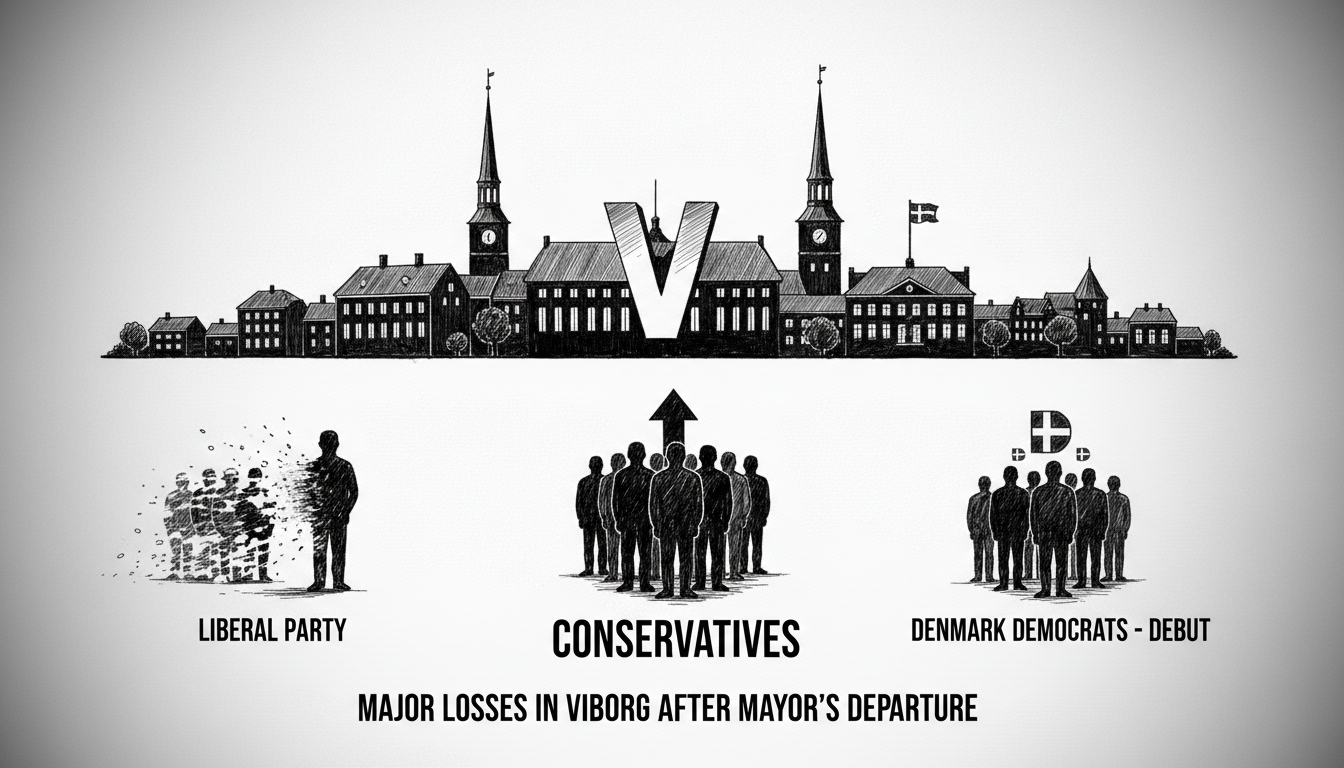The Liberal Party has suffered a dramatic setback in Viborg Municipality following Mayor Ulrik Wilbek's decision not to seek re-election. The party lost 15.4 percentage points in Tuesday's municipal and regional elections, securing just 18.9 percent of the vote. This represents a devastating blow for the party, which now loses half of its 12 council seats.
The Conservative People's Party emerged as the new largest party in the municipality with 22.6 percent of votes and eight mandates. Meanwhile, the Denmark Democrats made a powerful entrance into municipal politics, capturing 11.3 percent of votes in their first-ever local election campaign.
Wilbek's eight-year tenure as Viborg's Liberal mayor concluded with his retirement from politics. The former national handball coach for both men's and women's teams had brought considerable visibility to the municipality during his time in office. His departure created a leadership vacuum that appears to have significantly impacted voter confidence in the party.
Katrine Fusager Rohde has taken over as the Liberal Party's lead candidate in the municipality. She brings four years of experience from the municipal council but faces the challenging task of rebuilding party support after this substantial electoral defeat.
The Conservatives have put forward Stine Damborg as their candidate for mayor. The political landscape in Viborg has undergone remarkable transformation in recent years. Former Conservative mayor Torsten Nielsen, who led the municipality from 2014 to 2017, has now switched parties and serves as the lead candidate for the Denmark Democrats.
This election demonstrates the volatility of Danish local politics when prominent figures depart. Voters in Viborg have clearly sought new leadership and direction after eight years under Wilbek. The substantial gains by both the Conservatives and the newly established Denmark Democrats indicate a desire for political change in the municipality.
The results reflect broader trends in Danish politics where traditional party loyalties are weakening. Voters appear increasingly willing to support new political movements and shift between established parties. The Denmark Democrats' strong debut performance suggests they're effectively capitalizing on this trend in their first local election campaign.
What comes next for Viborg's political leadership remains uncertain. With no single party holding a clear majority, coalition negotiations will determine the municipality's future direction. The Conservative Party's new position as the largest party gives them advantage in these discussions, but they'll need partners to form a stable administration.
Local political analysts note that municipal elections often serve as bellwethers for national political trends. The Liberal Party's substantial losses in one of their traditional strongholds could signal challenges ahead for the party in future national elections.

